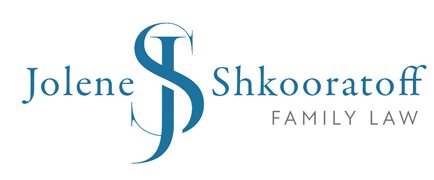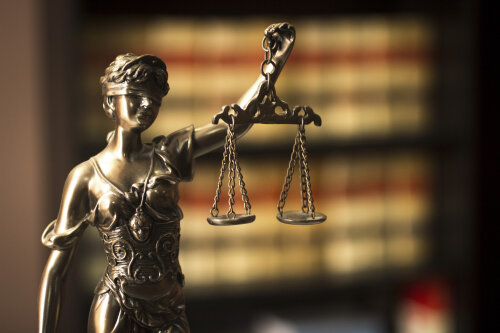Best Child Abuse Lawyers in Nelson
Share your needs with us, get contacted by law firms.
Free. Takes 2 min.
Free Guide to Hiring a Family Lawyer
List of the best lawyers in Nelson, Canada
About Child Abuse Law in Nelson, Canada
Child abuse is a serious issue in Nelson, Canada, as it is across the country. Child abuse encompasses physical, emotional, and sexual abuse, as well as neglect. The city of Nelson adheres to British Columbia’s provincial framework for child protection, designed to safeguard the welfare of children and ensure that they grow up in a safe and supportive environment. The laws are shaped by national guidelines and provincial statutes, focusing on the best interests of the child. Child abuse law aims to protect children from harm, initiate appropriate legal actions, and ensure that affected children and families receive the support they need to overcome these challenges.
Why You May Need a Lawyer
There are several situations where seeking legal assistance in cases of child abuse may be necessary:
1. Navigating Reports: If you have been accused of child abuse or if you suspect a child is being abused, you may need legal guidance to navigate reporting processes.
2. Defense Against Accusations: Legal representation is crucial if you are defending against false accusations of child abuse, to protect your rights and reputation.
3. Custody Disputes: Legal advice can be beneficial during custody disputes, especially where allegations of child abuse are involved, to ensure the safety and well-being of the child.
4. Investigating Abuse: Lawyers can assist in investigating claims of child abuse, helping to gather evidence and build a case to protect the child.
5. Legal Prosecution: In some cases, legal aid may be needed to prosecute abusers and bring them to justice.
Local Laws Overview
Nelson, being part of British Columbia, follows provincial laws pertaining to child protection. Important laws include:
- Child, Family and Community Service Act (CFCSA): This is the primary legislation governing child protection, outlining the responsibilities of government agencies in reporting and managing child abuse cases.
- Family Law Act: Provides legal frameworks for family-related matters, including custody and protection orders related to child safety.
- Criminal Code of Canada: Addresses severe cases of child abuse under criminal offenses, detailing acts that constitute a crime and the corresponding legal penalties.
The Ministry of Children and Family Development (MCFD) in B.C. also plays a crucial role, ensuring that allegations of abuse are investigated and that necessary care and support systems are in place for affected children and families.
Frequently Asked Questions
What constitutes child abuse under the law?
Child abuse includes physical harm, sexual molestation, emotional abuse, neglect, and any act causing or likely causing injury or harm to a child's health, welfare, or safety.
How can I report suspected child abuse in Nelson?
Suspected child abuse can be reported to the local office of the Ministry of Children and Family Development or to the local police. It is important to provide as much detailed information as possible.
What should I do if I'm falsely accused of child abuse?
If falsely accused, securing legal representation immediately is crucial. A lawyer can help to investigate the allegations and defend your case in court.
What are the legal penalties for child abuse in Canada?
Penalties depend on the severity of the abuse, ranging from fines and probation to lengthy prison sentences for serious offenses. Each case is judged on its specific circumstances.
Can a child testify in court against their abuser?
Yes, children can testify in court, although the process is managed carefully to ensure their safety and comfort, often utilizing testimonial aids.
What role does the Ministry of Children and Family Development (MCFD) play?
The MCFD investigates reports of child abuse, provides protective and supportive services, and ensures the child’s best interests are prioritized in legal proceedings.
Do abuse cases always go to trial?
No, not all cases go to trial. Some may be resolved through mediation or negotiation outside of court, depending on the circumstances and evidence available.
How long does the legal process take in child abuse cases?
The timeframe can vary widely depending on the complexity of the case, ranging from a few months to years for resolution.
Is counseling available for affected children and families?
Yes, various government programs and organizations provide counseling and support services to children and families affected by abuse.
Do I need a lawyer if I want to adopt a child who has been abused?
Legal assistance can be beneficial to navigate the adoption process, especially when additional considerations related to previous abuse are present.
Additional Resources
If you need more information or support, you can reach out to the following organizations:
- The Ministry of Children and Family Development (MCFD) in British Columbia.
- Kids Help Phone: A national helpline offering support and advice to children and families.
- British Columbia Law Institute: Offers information and resources about child protection laws.
Next Steps
If you believe you need legal assistance about child abuse, consider the following steps:
1. Contact a local lawyer specializing in family or child protection law for a consultation. They can provide guidance tailored to your situation.
2. Gather any relevant documentation or evidence related to the case to share with your lawyer.
3. Report any immediate threats to a child's safety to the MCFD or local authorities right away.
4. Stay informed and involved in legal proceedings or protective actions involving the child.
5. Consider reaching out to support groups or counseling services for emotional support and further guidance.
Lawzana helps you find the best lawyers and law firms in Nelson through a curated and pre-screened list of qualified legal professionals. Our platform offers rankings and detailed profiles of attorneys and law firms, allowing you to compare based on practice areas, including Child Abuse, experience, and client feedback.
Each profile includes a description of the firm's areas of practice, client reviews, team members and partners, year of establishment, spoken languages, office locations, contact information, social media presence, and any published articles or resources. Most firms on our platform speak English and are experienced in both local and international legal matters.
Get a quote from top-rated law firms in Nelson, Canada — quickly, securely, and without unnecessary hassle.
Disclaimer:
The information provided on this page is for general informational purposes only and does not constitute legal advice. While we strive to ensure the accuracy and relevance of the content, legal information may change over time, and interpretations of the law can vary. You should always consult with a qualified legal professional for advice specific to your situation.
We disclaim all liability for actions taken or not taken based on the content of this page. If you believe any information is incorrect or outdated, please contact us, and we will review and update it where appropriate.









